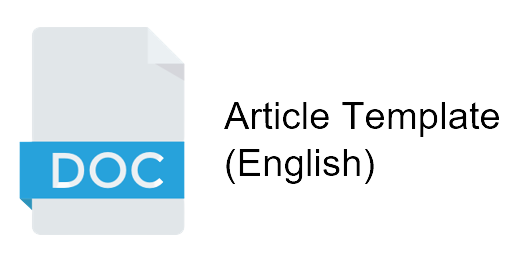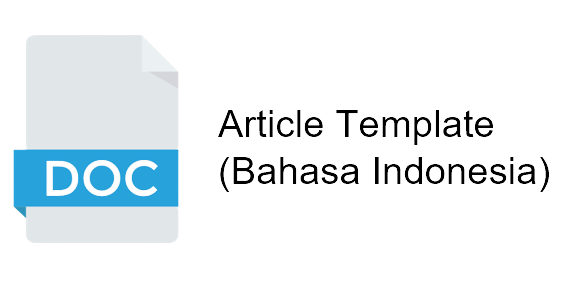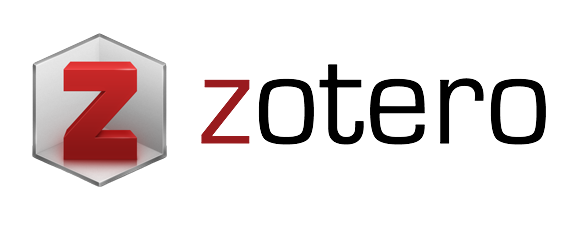Dari Sumber Informasi ke Galeri Pengetahuan Pendekatan Kearsipan pada Penyelenggaraan Pameran Arsip Statis
Adhie Gesit Pambudi(1*)
(1) Arsip Nasional Indonesia
(*) Corresponding Author
Abstract
Conceptually, archival exhibition is not a part of core functions of an archival organization. However, it could give an enormous benefit for the community when it could transform archives from just a source of information into a source of knowledge. This study elaborates principles and ideal stages that should be conducted by archival institution in organizing archival exhibitions so that it could give knowledge to the audiences. It focuses on a proper achival management approach in conducting archival exhibition rather than other aspects such as design or estetique.
Keywords
Full Text:
PDF (Bahasa Indonesia)References
Aubitz, S, et. al., 1990, Developing Archival Exhibitions, Technical Leaflet Series, Number 5 (USA: Mid-Atlantic Regional Archives Conference).
Dryden, J. 2004. “What’s in a Word: The Fuzziness of Archival Terminology”, Journal of Archival Organization, Vol. 2(1/2), 2004. (USA: The Haworth Press). p. 147-151.
Edmonson, R., 2016, Audiovisual Archiving: Philosopy and Principles (Paris: UNESCO).
Gelfand, A, 2013, “If We Build It (and Promote It) They Will Come: History of Analog and Digital Exhibits in Archival Repositories”, Journal of Archival Organization, Vol. 11, Issue. 1-2, p. 49-82.
Gordon, H, M. 1994. Archival Exhibition: Purposes and Principle, MA Thesis (Vancouver: University of British Columbia).
Gordon, S.T, 2008, “Heritage, Commerce, and Museal Display: Toward a New Typology of Historical Exhibition in the United States”, The Public Historian, Vol. 30, No. 3, p. 27-50.
Gosh, M, 2010, Archives and erecords management in Canada: a state of the art report (Canada: The York University).
Holmes, O. W, 1964, “Archival Arrangement Five Different Operations at Five Different Levels”, The American Archivist, Vol. 27, No. 1, p. 21- 42.
Howgill, E., 2015, “New methods of analysing archival exhibitions”, Archives and Records, Vol.36, No. 2, p. 179-194.
Jeurgens, C, 2009, “Archieven tussen geschiedenis, erfgoed, en volkenkunde”, Archievenblad, September 2009, p. 28-30.
Keith, P, 2014, Folding the Exhibition, (Barcelona: MACBA).
Keteelar, E., 2007, “Muniments and monuments: the dawn of archives as cultural patrimony”, Archivaria, Vol. 7, Issue 4, p. 343-357.
Khoon, L.C., et. al, 2008, “An Overview of Online Exhibitions”, DESIDOC Journal of Library and Information Technology, Vol. 28, No. 4, July 2008, p. 7-21.
Lerette, B. T., 2002, Archival Materials Exhibited in an Art Museum: A Case Study of Museum-Library Collaboration, Master Thesis (USA: University of North Carolina at Chapel Hill).
Lester, P, 2007, “Is the virtual exhibition the natural successor to the physical?”, Journal of the Society of Archivists, Vol. 27, Issue 1, p. 85-101.
Pearce-Moses, 2005,R. A Glossary of Archival and Records Terminology (Chicago: The Society of American Archivist). Rabins, J, 1980, “Archival Exhibits: Considerations and Caveats”, Georgia Archive, Vol. 8, No. 2, pp. 29-40.
Peraturan Pemerintah Nomor 28 Tahun 2012 tentang Pelaksanaan Undang-Undang Nomor 43 Tahun 2009 tentang Kearsipan
Reid, G. A “Digital Exhibition: The Powys Digital History Project, 1996-2001”, Journal of the Society of Archivists, Vol. 22, Issue. 2, p. 161 – 176.
Rhee, H. L., 2015, “Reflections on Archival User Studies”, Reference and User Services Quarterly, June 2015, p. 29-42.
Spraggs, G., 2008, Using Archives in Higher Education History Teaching, (Somerset: Society of Archivists).
Undang-Undang Nomor 43 Tahun 2009 tentang Kearsipan
Yakel, E., 2003, “AI: Archival Intelligence and User Expertise”, The American Archivist, Vol. 66 (Spring/Summer 2003), p. 51- 78.
Article Metrics
Refbacks
- There are currently no refbacks.
Copyright (c) 2017 The authors

This work is licensed under a Creative Commons Attribution-ShareAlike 4.0 International License.






